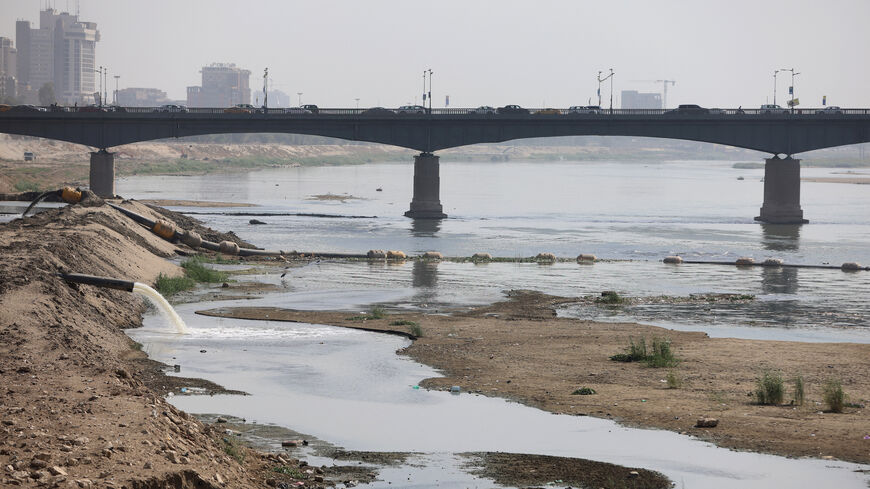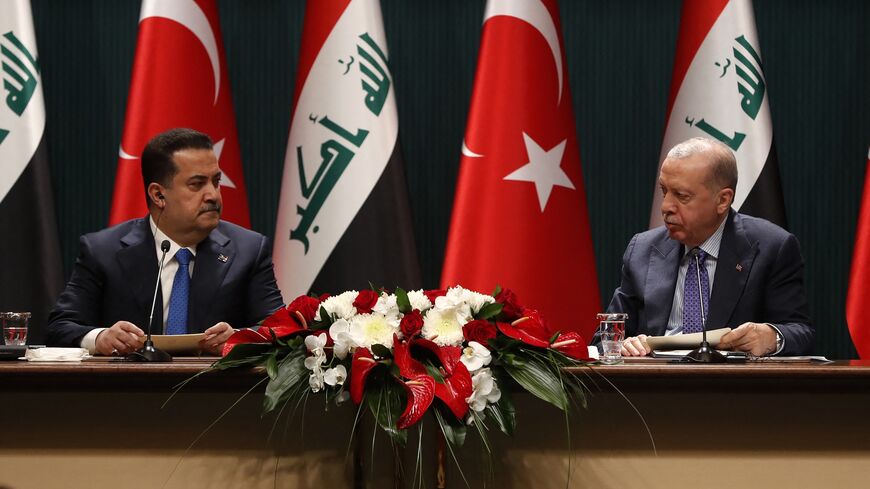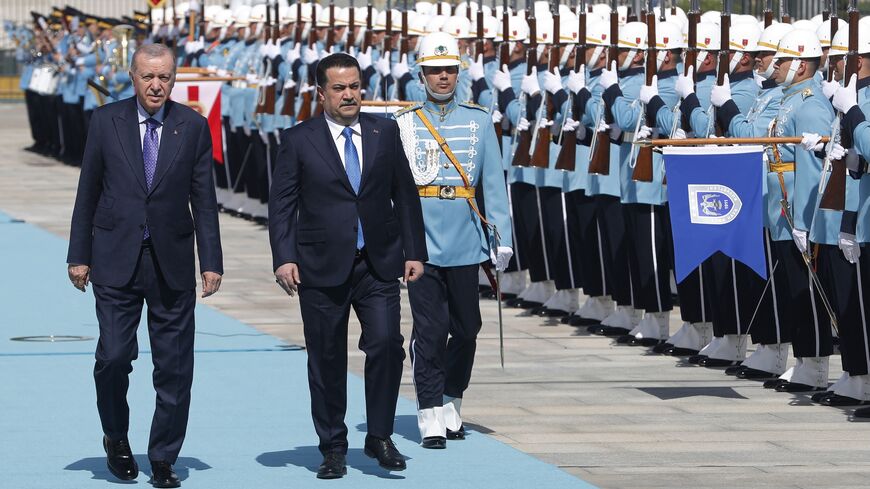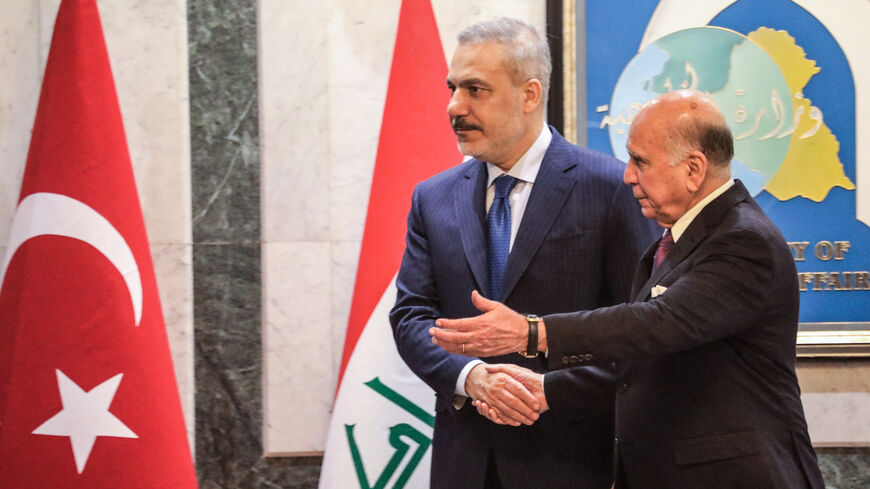Turkey, Iraq sign oil-for-water deal: What to know
The landmark deal between Ankara and Baghdad sets out a finance mechanism to direct Iraqi oil proceeds into Turkish-built water infrastructure.
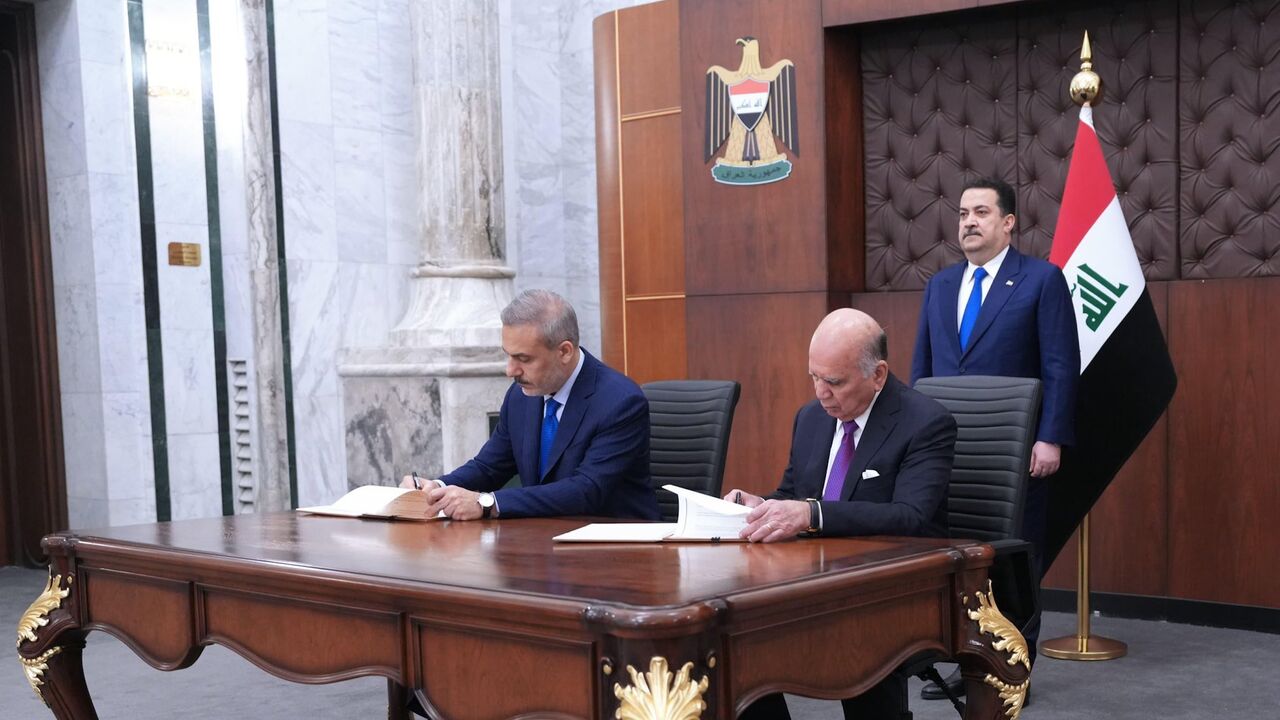
ANKARA — In a landmark deal, Ankara and Baghdad created a mechanism to channel revenues from Iraqi oil exports to Turkey into water projects built by Turkish firms.
The deal comes as Ankara shores up its ties Baghdad ahead of the Iraqi elections next Tuesday.
Details: Iraq and Turkey signed the accord, called the Framework Agreement on the Financial Mechanism for Water Cooperation Projects, during Turkish Foreign Minister Hakan Fidan’s Sunday visit to Baghdad, where he met his Iraqi counterpart, Fuad Hussein.
At a joint presser with Hussein, Fidan said the deal “would pave the way for the lasting rehabilitation of Iraq’s water systems,” adding, “It will be the largest infrastructure investment in Iraq’s history.”
Hussein described it as a “first-of-its-kind cooperation on water management” between the neighbors.
Water-sharing disputes have long strained ties between Turkey and Iraq. While Baghdad accuses Ankara of restricting the downstream flow from the Tigris and Euphrates headwaters, Turkey contends that Iraq’s water infrastructure is outdated and wasteful.
Ring-fenced oil funds: The mechanism will channel payments from Turkish imports of Iraqi oil into a special account, a Turkish diplomatic source told Al-Monitor.
Those payments will then be used to finance Iraqi water infrastructure projects to be carried out by Turkish firms, according to the source, effectively creating a closed-loop system in which oil revenues flow back into Turkish-built works.
Baghdad will form a dedicated committee to invite and evaluate bids from Turkish companies, the source said.
The system is designed to finance projects that will modernize Iraq’s aging water infrastructure and improve the efficiency and sustainability of its water use amid worsening drought and record-low reservoir levels.
Why it matters: The deal marks the first concrete agreement between Iraq and Turkey in decades to address their long-standing water-sharing dispute.
Ankara is using water diplomacy as a tool to sustain its sway over Iraqi decision-makers ahead of the country’s Nov. 11 elections, positioning itself as part of the solution to Iraq’s deepening water shortage.
In Iraq, the announcement delivers a political boost for Iraqi Prime Minister Mohammed Shia al-Sudani, who is grappling with mounting public fury over severe water shortages, especially in Basra, where drought-driven protests have intensified.
On the Turkish side, the arrangement will allow Ankara to curb cash outflows and ensure its companies secure lucrative contracts.
Background: Turkey’s total imports from Iraq reached $1.83 billion in 2024.
The figure was expected to rise following the September resumption of oil flows from the semi-autonomous Kurdistan Region to Turkey through a pipeline that had been closed for more than two years.
The closure followed a legal dispute between Ankara and Baghdad after the International Chamber of Commerce ruled in 2023 that Turkey had violated Iraqi sovereignty by importing Kurdish crude without Baghdad’s approval.

